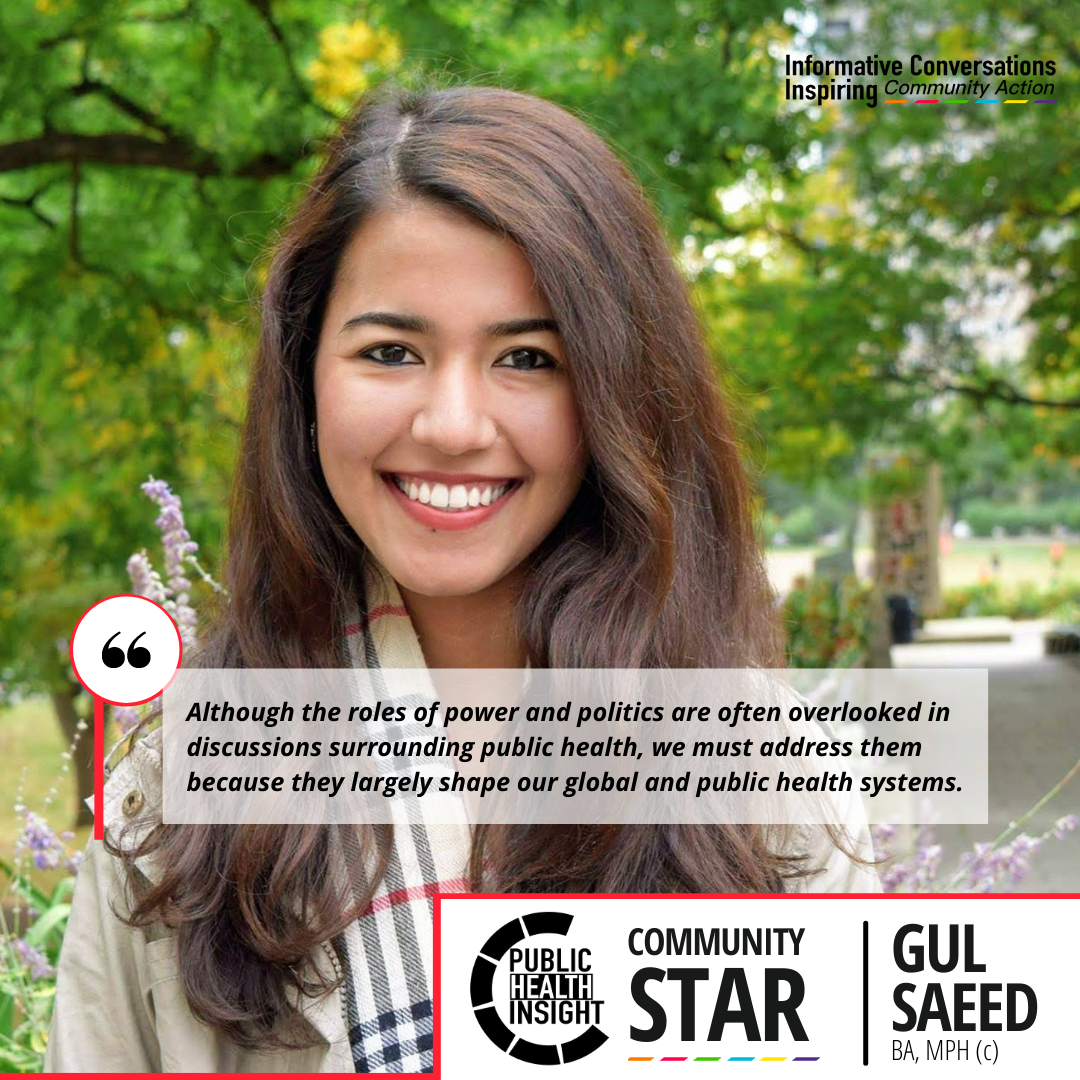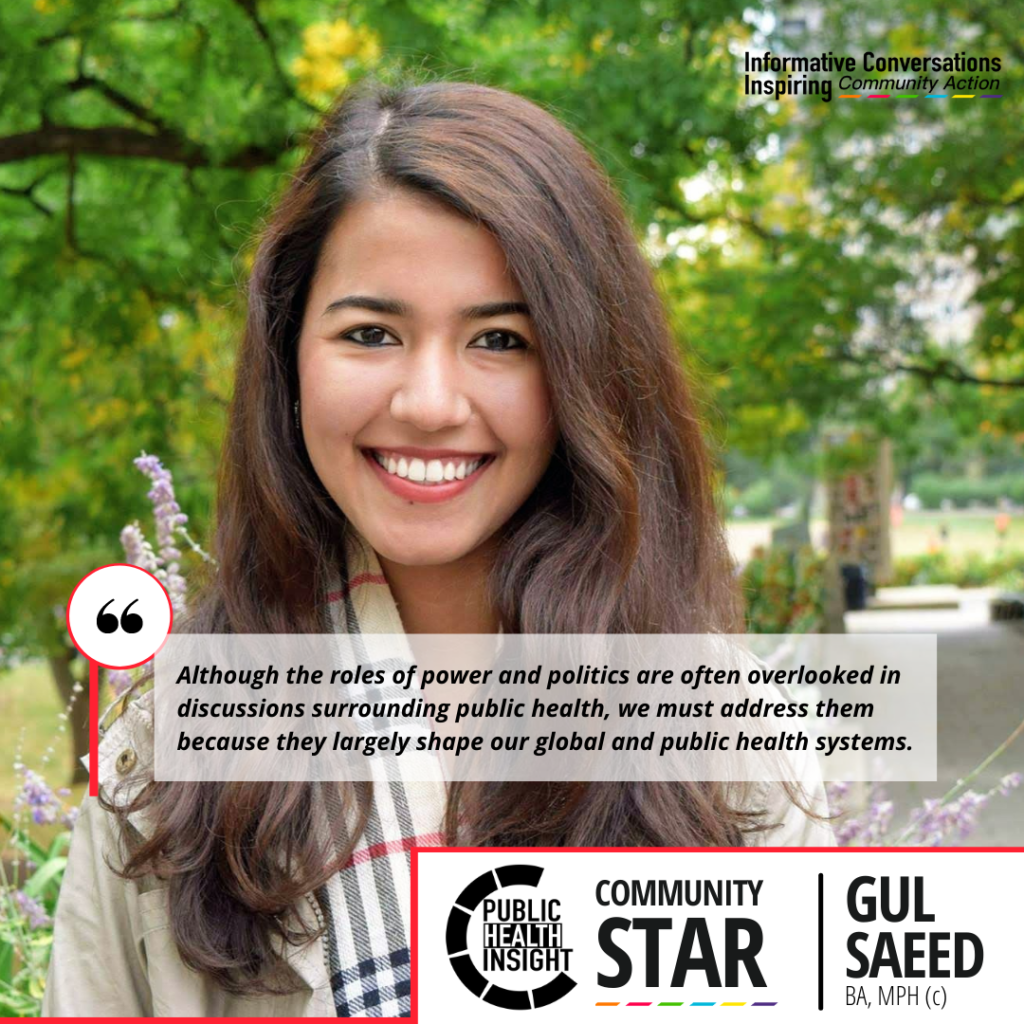
11/3/2021
Public Health Insight Community Stars aims to highlight the diversity of individuals working to create change for lasting positive impacts in our communities, through the application of public health and global health practice.
WHAT WORK DO YOU DO IN PUBLIC HEALTH?
My research primarily focuses on examining access to healthcare goods/services to inform the development of evidence-based strategies to improve access for underserved populations. As a Research Assistant at the WHO Collaborating Centre for Governance, Accountability, and Transparency in the Pharmaceutical Sector, my work focuses on identifying and advancing anti-corruption mechanisms that promote equitable access to essential medicines and vaccines globally. I am also working with a clinical trial at Sinai Health System, which aims to optimize existing resources to increase access to psychological treatments for perinatal populations with depression and anxiety in Canada and the U.S. Additionally, I am collaborating with Peer Researchers on a study to understand the perinatal care experiences of women with disabilities in Ontario, with the goal of improving access to/the quality of health care for them. I am also a co-lead of the Infectious Disease Working Group; we aim to raise public awareness, and share evidence-based information and resources pertaining to COVID-19 and other infectious diseases.
WHAT DOES PUBLIC HEALTH MEAN TO YOU?
For me, public health is going beyond acute care to address the root causes of health issues, namely the social determinants of health, to prevent avoidable, unjust health disparities across populations. Effective public health practice ensures that everyone has equitable access to healthcare, as well as food, safe housing, employment, education, etc., which are fundamental factors that shape our health and well-being. To achieve this, public health should address the structural disparities that contribute to inter/intra group differences in health outcomes at local, national, and global levels.
YOUR PUBLIC HEALTH MESSAGE?
Although the roles of power and politics are often overlooked in discussions surrounding public health, we must address them because they largely shape our global and public health systems. The reality is these systems are borne of colonialism and continue to be impacted by it, resulting in inequitable opportunities and substandard services/interventions for racialized communities. Colonialism has obscured equitable partnership and allowed Western/Euro-centric knowledge to shape our response to public health issues. As such, I’d really like to see more interventions that give voice to racialized communities and enable them to have increased control over their own health rather than relying on external aid. Public health will only be truly effective if it is anti-colonial, equitable, and reflexive in discourse and practice.

Connect with Gul on LinkedIn
Want to Nominate Someone?
Send the nominee’s contact details to thepublichealthinsight@gmail.com or through any of our social media platforms along with a brief reason why they should be a Public Health Insight Community Star